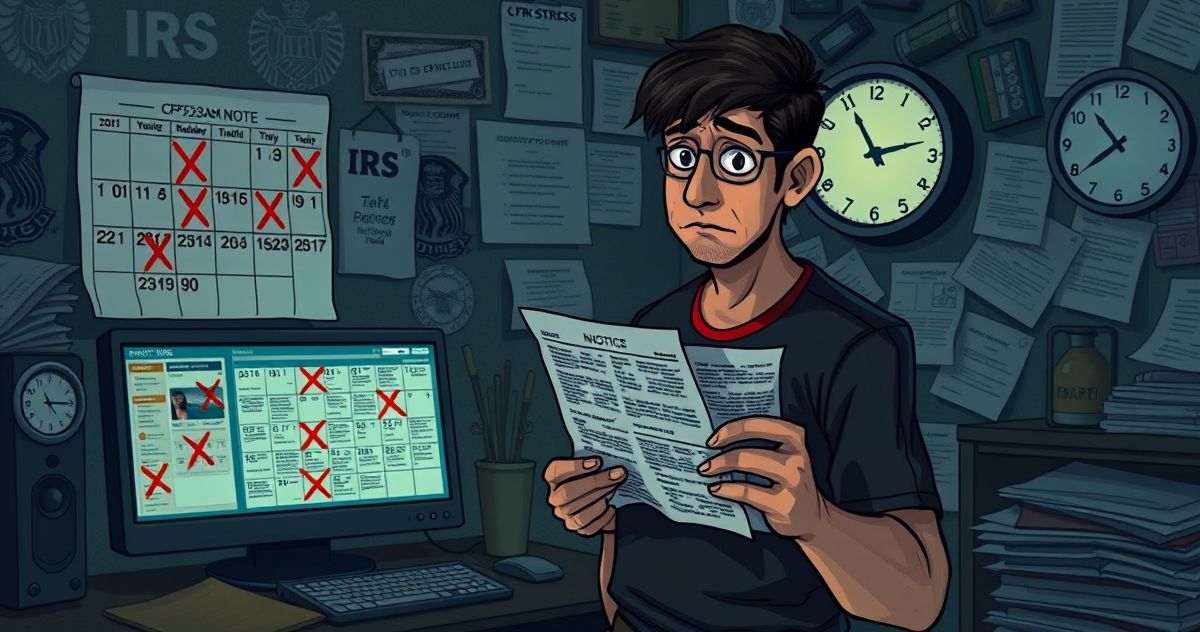Understanding the CP523AM Notice
The CP523AM Notice is a crucial document issued by the Internal Revenue Service (IRS) to inform taxpayers that their existing installment agreement is at risk of default. This notice is a warning that the taxpayer has either missed a payment or a required action did not take place, such as failing to file or pay on time. The purpose of the CP523AM Notice is not only to alert taxpayers of their agreement’s status but also to provide them with an opportunity to rectify issues to avoid more severe collection actions.
What is a CP523AM Notice?
The CP523AM Notice serves as a reminder and warning, alerting taxpayers that their installment plan—a structured arrangement to pay off tax debts over time—has been compromised. Non-compliance with the agreement terms often triggers this notice, and it is imperative for recipients to act promptly to avoid enforced collection methods such as levies or liens.
Primary Purpose of the CP523AM Notice
Its main purpose is to inform the taxpayer about the impending default of their installment agreement. Such issues could arise from late or missed payments or failure to meet other agreed-upon terms. The CP523AM Notice gives taxpayers a chance to correct the situation before the IRS moves forward with further enforcement and collection activities.
Key Features of the CP523AM Notice
- Notification of Default: It alerts taxpayers that their installment agreement is on the verge of termination due to non-compliance.
- Detailed Account Summary: The notice typically includes an account summary, detailing the missing payments or actions that have led to the notice.
- Instructions for Rectification: Specific steps the taxpayer needs to take to restore the agreement, such as making past due payments within a specified timeframe.
- Potential Consequences: Outlines the potential consequences of non-compliance, including enforced collection methods.
Relevant Filing or Compliance Requirements
To avoid triggering a CP523AM Notice, taxpayers must adhere to a series of compliance requirements:
- Timely Payments: Payments must be made according to the schedule detailed in the installment agreement.
- Filing Requirements: All tax returns must be filed on time. Non-filing can also lead to a notice as it violates the terms of the agreement.
- Full Payment Compliance: Current taxes must be paid alongside your installment. New liabilities can affect your agreement’s status.
Penalties or Consequences for Non-Compliance
Failure to address the CP523AM Notice could lead to a cascade of more severe consequences, including:
- Termination of Installment Agreement: The agreement is terminated, making the full tax debt immediately due.
- Enforced Collection Actions: The IRS may proceed with enforced collection actions, such as imposing bank levies or garnishing wages.
- Increased Debt due to Pentalties: Additional interest, penalties, or fines might accrue, increasing the taxpayer’s overall debt burden.
Importance of the CP523AM Notice in Tax Resolution
The CP523AM Notice plays a pivotal role in the landscape of tax resolution. By proactively managing this notice, taxpayers can prevent further financial disruption and regain a stable agreement with the IRS.
First, it is vital to appreciate the notice’s timing. Often, the early receipt opens a window for negotiation or rectification, significantly reducing the chance of increased financial stress due to enforcement measures. Additionally, promptly responding by either resolving the delinquency (making a late payment) or contacting the IRS to renegotiate terms can stave off further credit and financial complications.
Moreover, the receipt of a CP523AM Notice should be viewed not just as an administrative alert, but as an incentive to reassess current financial practices. Meeting compliance requirements and ensuring timely payments contribute to broader financial health and taxpayer credibility.
To reconnect with a stable financial plan, taxpayers can consider various actions: setting up an EFTPS for automatic payments, seeking consultancy from tax resolution specialists, or negotiating a new agreement arrangement based on altered circumstances.
Ultimately, handling a CP523AM Notice effectively—and early—promotes financial stability, preserves the taxpayer’s credit standing, and helps in managing IRS relations, mitigating potential long-term consequences that could arise from escalated collection efforts.

